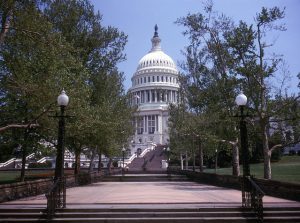Marijuana Legislation Wins in Congress, Now Onto the Senate
 Marijuana supporters in California rejoiced late last month as legislation passed by the U.S. House of Representatives could afford the industry more freedom to grow. Currently, the recreational use and sale of marijuana is legal in California, along with 10 other states, and Washington D.C. But federal law continues to classify cannabis as a Schedule 1 narcotic. While it is yet to happen, this makes folks in the cannabis industry weary, as the door remains open for the federal government to prosecute against cannabis related businesses, even in states that have legalized marijuana.
Marijuana supporters in California rejoiced late last month as legislation passed by the U.S. House of Representatives could afford the industry more freedom to grow. Currently, the recreational use and sale of marijuana is legal in California, along with 10 other states, and Washington D.C. But federal law continues to classify cannabis as a Schedule 1 narcotic. While it is yet to happen, this makes folks in the cannabis industry weary, as the door remains open for the federal government to prosecute against cannabis related businesses, even in states that have legalized marijuana.
The Blumenauer-McClintock Amendment
The lauded legislation, known as the Blumenauer-McClintock amendment, would prohibit the Department of Justice from using federal funds to interfere with California state laws, or the laws in any state or district, legally permitting the regulated adult-use of cannabis.
Supporters for marijuana law reform are praising the legislation. Justin Strekal, Political Director for pro-marijuana organization, NORML, called it “the most significant vote on marijuana reform policy that the House of Representatives has ever taken.” That’s because the cannabis industry would certainly welcome extended protections within states that already permit the legal use and sale of marijuana.
Ongoing Marijuana Business Challenges
One of the reasons growth of the cannabis industry has been somewhat thwarted, is thanks to the patchwork of legislation threatening operations and restricting expansion. Just a few simple examples of essential business hurdles made considerably more challenging in the cannabis industry, include:
- Possession – it is unlawful for any adult to carry more than an ounce of marijuana. This becomes problematic to supply chains. As it stands, truck drivers transporting cannabis from farmland to processing centers or retail outlets can essentially be charged with with a felony for trafficking.
- Banking – most financial institutions will not facilitate transactions for cannabis based businesses for fear of being charged with money laundering. This leaves many marijuana related businesses to rely on cash only operations, which most say detracts from their bottom lines.
- Advertising – it is difficult to grow product sales without advertising, especially in an emerging market. Due to the muddy legal waters, social media applications Facebook and Twitter, along with tech giant, Google, will not permit advertisements containing cannabis related materials.
What’s more, while under the Obama Administration, the Justice Department was directed not to interfere with state laws on marijuana issues. But the Trump Administration has essentially reneged on that stance. And to the concern of cannabis business operators, nothing currently prevents the attorney general, sitting or future, from implementing a crackdown.
It’s no surprise then, that approval of the bipartisan language sponsored by Earl Blumenauer (D-OR), Eleanor Holmes Norton (D-DC) and Tom McClintock (R-CA), represents a significant move forward in marijuana reform policy.
The Vote
While most Republicans opposed the legislation, approximately 1 in 5 of its members voted with Democrats to pass the bill in the House 267 to 165. The legislation now heads to the Senate, where Republicans enjoy a small majority. If the legislation also passes there, many cannabis based business owners, operators and ancillary companies will exhale more easily, as they continue to navigate the tricky body of cannabis related legislative waters.
But it’s no done deal. Given that Senate Majority Leader Mitch McConnell (R-KY) is opposed to legalized marijuana, it is possible leaders may try to block the vote. A hot ticket item for many, so fingers crossed, the outcome is a positive one.
Got Legal Questions Related to Your Cannabis Businesses?
Our Southern California cannabis business lawyers can help answer any questions you may have.
The Los Angeles CANNABIS LAW Group represents growers dispensaries, ancillary companies, patients and those facing criminal marijuana charges. Call us at 949-375-4734.
Additional Resources:
The Blumenauer-McClintock Amendment
 Cannabis Law Group's Medical Marijuana Legal Blog
Cannabis Law Group's Medical Marijuana Legal Blog




